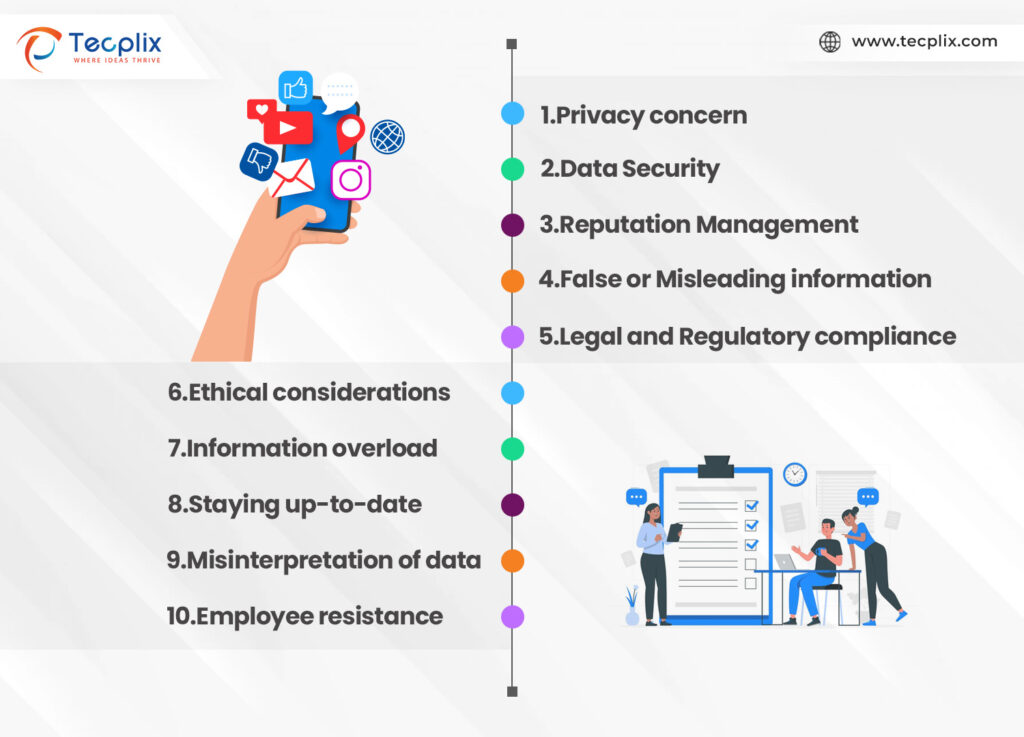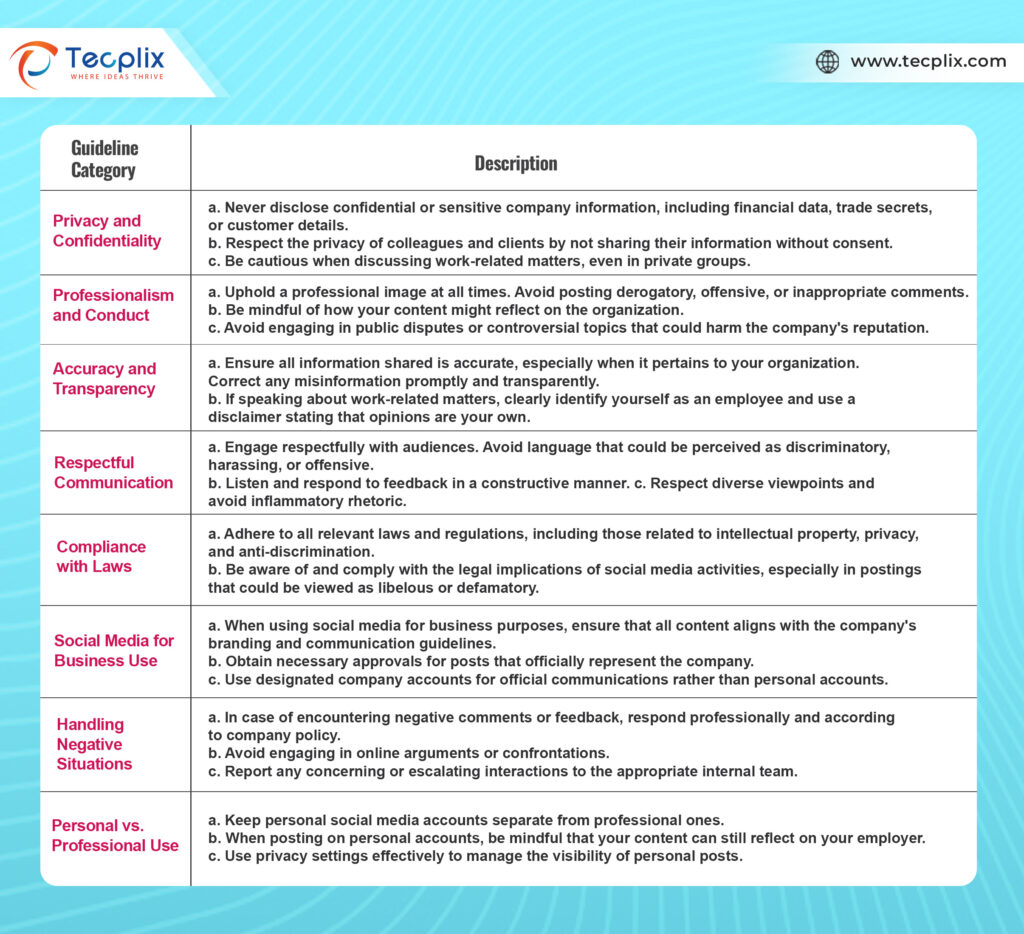In an era where a single social media post can make or break a brand’s reputation, understanding social media compliance is crucial. It’s not just about what you post, but how you post it. Let’s explore the ins and outs of staying compliant on social media.
What is Social Media Compliance?
Social media compliance refers to the adherence to relevant laws, regulations, and internal policies when engaging in activities on social media platforms. It involves ensuring that organizations and individuals use social media responsibly, ethically, and legally. Compliance may vary based on industry-specific regulations, data protection laws, advertising standards, and other applicable rules.
Common Social Media Compliance Risks:

Figure 1: Common Risks with Social Media
Data Privacy Concerns:
- Sharing sensitive or private information without consent.
- Mishandling user data leads to breaches of privacy regulations.
Advertising Standards:
- Failure to disclose sponsored content or partnerships.
- Using misleading or deceptive advertising practices.
Intellectual Property Violations:
- Unauthorized use of copyrighted material.
- Infringement on trademarks or patents.
Employee Conduct:
- Employees sharing inappropriate or confidential information.
- Violation of company social media policies.
Regulatory Non-Compliance:
- Failure to comply with industry-specific regulations.
- Non-adherence to general social media laws.
Reputation Management:
- Negative comments or posts damage the reputation.
- Mishandling public relations crises on social media.
Security Threats
- Phishing attacks and scams are conducted through social media.
- Unauthorized access to social media accounts.
How to Stay Compliant on Social Media
Understand Applicable Laws
- Stay informed about relevant laws and regulations on social media in your industry and location.
Develop Social Media Policies
- Establish clear and comprehensive social media policies for employees, covering appropriate behavior, confidentiality, and disclosure requirements.

Figure 2: Social Media Guidelines for Employees
Provide Training
- Train employees on social media compliance, including data privacy, advertising standards, and the company’s specific policies.
Monitor and Moderate Content
- Regularly monitor social media content to identify and address any compliance risks.
- Implement moderation procedures to manage user-generated content.
Secure Social Media Accounts
- Implement strong authentication measures to secure access to social media accounts.
- Regularly review and update account permissions.
Data Protection Compliance
- Ensure compliance with data protection regulations (e.g., GDPR, CCPA) when collecting and handling user data.
Transparent Advertising
- Disclose sponsored content and partnerships using appropriate hashtags or labeling.
- Ensure that advertisements comply with applicable standards.
Regular Audits and Assessments
- Conduct regular audits of social media activities to identify and address compliance issues.
- Assess the effectiveness of social media compliance strategies.
Social Media Regulations for Different Industries
Healthcare Industry
- Adherence to patient privacy laws (HIPAA).
- Compliance with regulations on healthcare advertising and promotion.
Financial Services Industry
- Compliance with financial regulations (e.g., SEC, FINRA).
- Monitoring of financial promotions and communications.
Pharmaceutical Industry
- Adherence to regulations governing drug advertising and promotion.
- Handling of adverse event reporting on social media.
Legal Industry
- Compliance with attorney-client privilege and confidentiality.
- Adherence to ethical standards and regulations related to legal advertising.
Education Industry
- Protection of student privacy (FERPA).
- Compliance with regulations governing educational advertising.
Technology Industry
- Protection of intellectual property rights.
- Adherence to export control regulations for technology products.
Retail Industry
- Compliance with consumer protection laws.
- Transparency in advertising and promotions.
Government Agencies
- Adherence to laws governing public records and transparency.
- Compliance with regulations on government communications.
Moving Ahead
Social media compliance is a multifaceted aspect of online engagement, requiring a thorough understanding of industry regulations, data protection laws, and ethical considerations. Regular training, monitoring, and adaptation to evolving legal landscapes are key to maintaining compliance on social media platforms. Organizations should consult legal professionals to ensure they are up-to-date with relevant regulations and best practices in their specific industries.
Read related article:


